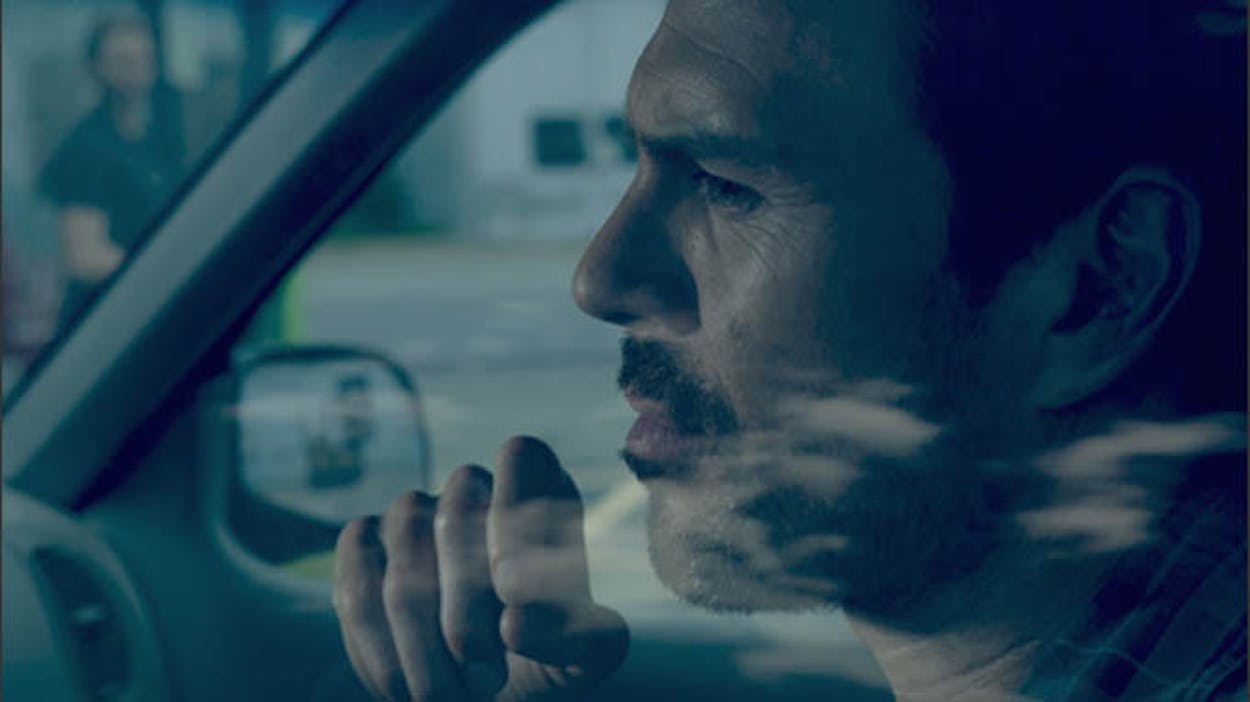In the mid-2000s, the Malaysian-born filmmaker Yen Tan spent many long weekends commuting from Dallas, where he was living at the time, to Houston, where he was editing his first feature, Happy Birthday. He often found himself at rural gas stations and convenience stores between the two cities, wondering about the communities: Did gay men live in these small towns? If so, why would they choose to live in a kind of self-imposed exile?
Tan soon went on gay online chat rooms and reached out to men who lived this way. What he learned made him think he might have the makings of a screenplay.
“Most of these men are married,” explained Tan, who moved to the United States in 1995 to attend Drake University in Iowa, and who is now based in Austin. “Most of them are closeted. A lot of them have kids. Some of their ex-wives live in the same town. I tried to think what kind of story might come out of this, that I could actually personally relate to.”
On Monday afternoon, Tan will premiere the fruit of his research, Pit Stop, at the Sundance Film Festival in Park City, Utah. The film follows the parallel stories of two working class, gay men, living in an unnamed Texas town: Gabe (Bill Heck), who still spends a fair amount of time with his ex-wife and daughter, and Ernesto (Marcus DeAnda), who pines for a former lover who is in the hospital in a coma.
With its restrained handling of potential soap-sudsy material, Pit Stop recalls the groundbreaking The Kids Are All Right: It’s a movie that acknowledges the complicated nature of modern gay life and also takes its characters’ homosexuality for granted. It also puts forth a vision of small town Texas never quite seen before, a relatively tolerant, but still self-conscious, atmosphere, where two men might be set up on a date by one of their ex-wives, but all parties involved still whisper the details.
“It was just a beautifully written piece that was perhaps not your typical LGBT film,” said Kim Yutani, a programmer for the Sundance Film Festival.
Pit Stop is playing at Sundance as part of an unusually Texas-flavored program—one that speaks of the increasing diversity of the filmmaking coming out of the state. If the Austin-to-Park City axis was once defined by chatty tales of rudderless twenty-somethings, a la Richard Linklater’s Slacker, or scrappy, DIY action thrillers, a la Robert Rodriguez’s El Mariachi, the “Texas style” of indie filmmaking now seems much more difficult to define.
In addition to Tan’s gay romance, Sundance is also screening new works by the Dallas-based Shane Carruth (Upstream Color) and David Lowery (Ain’t Them Bodies Saints), and the Austin-based Jeff Nichols (Mud) and Andrew Bujalski (Computer Chess.) Carruth, whose previous film, Primer, won the Sundance Grand Jury Prize in 2004, specializes in head-trippy science-fiction. In their earlier films, Nichols and Lowery have tipped their aesthetic hats to the dreamy lyricism of another Texan, Terrence Malick. Bujalski’s earlier films of hipster angst, like Funny Ha Ha and Mutual Appreciation owe an obvious debt to Slacker, but this new effort, set at a computer chess tournament in 1980, is said to be a visual and thematic departure.
(Serving perhaps as spiritual godfathers, Linklater and Rodriguez are also at Sundance this year: On Saturday, Rodriguez was scheduled to attend a twentieth anniversary screening of El Mariachi; on Sunday night, Linklater will premiere Before Midnight, the latest in his series of films starring Ethan Hawke and Julie Delpy as sometimes-lovers who meet periodically in different spots around the globe.)
“What’s interesting about this new generation is they all tell very different stories, in very different ways, and everyone seems to be influenced by someone different,” said Kelly Williams, a producer of both Pit Stop, and Black Metal, a short film also playing at Sundance. Black Metal is directed by another Austinite, Kat Candler, the highest-profile female filmmaker of this emerging group.
Despite their disparate interests and styles, many of these artists know and regularly work with one another. (In addition to writing and directing his own film, Lowery co-wrote Pit Stop with Tan and co-edited Upstream Color with Carruth.) And most observers don’t necessarily think these writers and directors are rejecting the influences of their indie ancestors.
They are instead seen as proof that the utopia Linklater and Rodriguez first hinted at—a vibrant Texas filmmaking community that might serve as a viable alternative to filmmakers who didn’t want to live in New York or Los Angeles—has now come to fruition.
To illustrate the point, Richard Herskowitz, the artistic director of the Houston Cinema Arts Festival, points to yet another film in this year’s Sundance program, Houston, a drama about a corporate headhunter, directed by German filmmaker Bastian Günther, who has moved to Austin since shooting the project.
“It’s emblematic of what Austin and Texas has become,” Herskowitz said. “And that’s what makes for a really healthy film culture—one that’s open to the diverse international and cultural influences. A guy from Germany making a movie in Houston and now settling in Austin—I think it’s just fascinating.”
- More About:
- Film & TV






